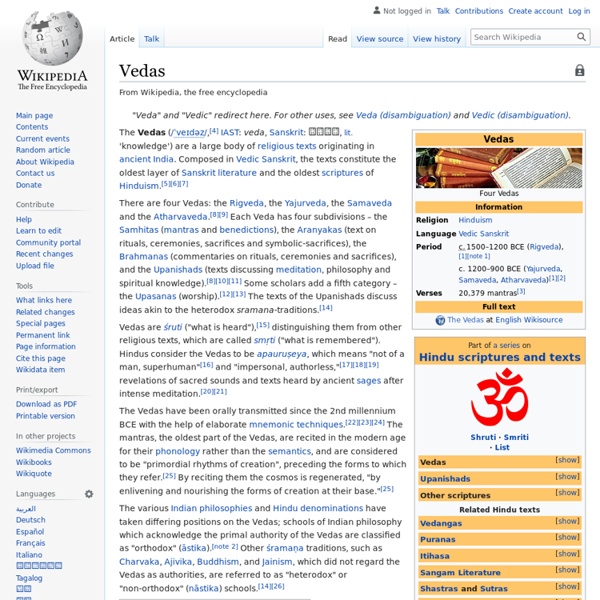Nikolai Berdyaev
Berdyaev's grave, Clamart (France). Nikolai Alexandrovich Berdyaev (/bərˈdjɑːjɛf, -jɛv/;[1] Russian: Никола́й Алекса́ндрович Бердя́ев; March 18 [O.S. March 6] 1874 – March 24, 1948) was a Russian political and also Christian religious philosopher who emphasized the existential spiritual significance of human freedom and the human person. Alternate historical spellings of his name in English include "Berdiaev" and "Berdiaeff", and of his given name as "Nicolas" and "Nicholas". Biography[edit]
Alfred Korzybski
Alfred Habdank Skarbek Korzybski ([kɔˈʐɨpski]; July 3, 1879 – March 1, 1950) was a Polish-American independent scholar who developed a field called general semantics, which he viewed as both distinct from, and more encompassing than, the field of semantics. He argued that human knowledge of the world is limited both by the human nervous system and the languages humans have developed, and thus no one can have direct access to reality, given that the most we can know is that which is filtered through the brain's responses to reality. His best known dictum is "The map is not the territory".
Victor Kandinsky
Victor Khrisanfovich Kandinsky (Russian: Виктор Хрисанфович Кандинский) (April 6, 1849, Byankino, Nerchinsky District, Siberia – July 3, 1889, Saint Petersburg) was a Russian psychiatrist, and was 2nd cousin to famed artist Wassily Kandinsky.[1] He was born in Siberia into a large family of extremely wealthy businessmen.[2] Victor Kandinsky was one of the famous figures in Russian psychiatry and most notable for his contributions to the understanding of hallucinations.[3] Biography[edit] He graduated from Moscow Imperial University Medical School in 1872 and started to work as a general practitioner in one of the hospitals in Moscow.[4] In 1878 he married his medical nurse Elizaveta Karlovna Freimut (Russian: Елизавета Карловна Фреймут).[4] In October 1878, Victor again entered a psychiatric hospital.
Thomas Carlyle
Scottish historian, satirical writer, essayist, philosopher and teacher Thomas Carlyle (4 December 1795 – 5 February 1881) was a Scottish historian, satirical writer, essayist, translator, philosopher, mathematician, and teacher.[1] Considered one of the most important social commentators of his time, he presented many lectures during his lifetime with certain acclaim in the Victorian era. One of those conferences resulted in his famous work On Heroes, Hero-Worship, and The Heroic in History where he argued that the key role in history lies in the actions of the "Great Man", claiming that "the history of the world is but the biography of great men".[2] A respected historian, his 1837 book The French Revolution: A History was the inspiration for Charles Dickens' 1859 novel A Tale of Two Cities, and remains popular today. Carlyle's 1836 Sartor Resartus is a notable philosophical novel. Early life and influences[edit]
Anachronism
Chronological inconsistency An anachronism (from the Greek ἀνά ana, "against" and χρόνος khronos, "time") is a chronological inconsistency in some arrangement, especially a juxtaposition of persons, events, objects, or customs from different periods. The most common type of anachronism is an object misplaced in time, but it may be a verbal expression, a technology, a philosophical idea, a musical style, a material, a plant or animal, a custom, or anything else associated with a particular period that is placed outside its proper temporal domain.
Karl Robert Eduard von Hartmann
von Hartmann's grave in Berlin Karl Robert Eduard von Hartmann (23 February 1842 – 5 June 1906) was a German philosopher, author of Philosophy of the Unconscious (1869). Biography[edit] Philosophy[edit] To avoid the unhappiness of aimless desire, the Will realizes the ideas already potentially present and the Unconscious becomes actual. The existence of the universe is the result, then, of the illogical Will, but its characteristics and laws are all due to the Idea or Reason and are, therefore, logical.[5] It is the best of all possible worlds, which contains the promise of the redemption of the Unconscious from actual existence by the exercise of Reason in partnership with the Will in the consciousness of the enlightened pessimist.[4]
Meister Eckhart
Take a short survey and help us improve Wikipedia Thanks for the feedback! We are using it to make Wikipedia even better! Eckhart came into prominence during the Avignon Papacy, at a time of increased tensions between monastic orders, diocesan clergy, the Franciscan Order, and Eckhart's Dominican Order of Preachers. In later life, he was accused of heresy and brought up before the local Franciscan-led Inquisition, and tried as a heretic by Pope John XXII.
Johann Heinrich Jung
Johann Heinrich Jung (12 September 1740, Grund – 2 April 1817, Karlsruhe), better known by his assumed name Heinrich Stilling, was a German author. Life[edit] He was born in the village of Grund (now part of Hilchenbach) in Westphalia.



